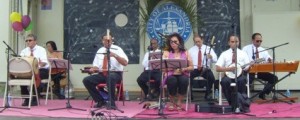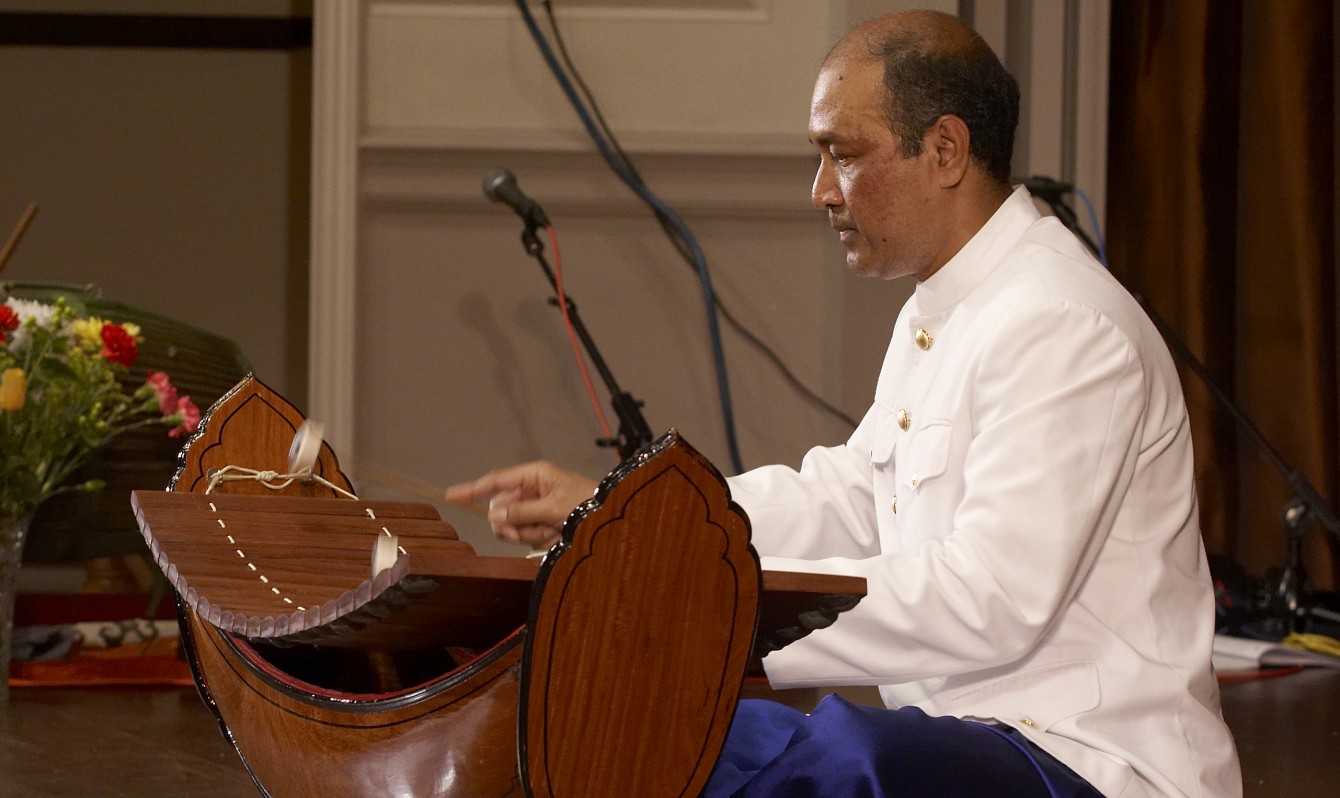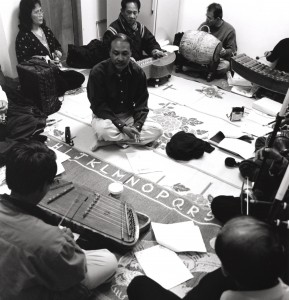Mohori

In contrast to genres performed explicitly for sacred and ritual functions, scholars of Khmer music categorize mohori as entertainment music. (Royal University of Fine Arts 1974, Giuriati 1988) Mohori is considered to be mundane: common people enjoy it and the songs depict various aspects of daily life in Cambodia such as working in the fields and separating from a lover. Mohori is performed with singers (usually one male and one female) and several instrumentalists who play a range of instruments of various timbres.
Excerpt from Kolap Phnom Penh (Rose of Phnom Penh) from Mohori:Khmer Music from Cambodia. Sam-Ang Sam Ensemble.
Vocals: Van Yan; Roneat aik, roneat thung, khimm: Chum Ngek; Tror sao, tror ou, takhe: Van Pok; Khloy, thaun rumanea: Sam-Ang Sam; Chhing: Chan Moly Sam
Mohori music may by definition be mundane. However, when the members of Mohori Phirum Ensemble* take part in playing music together, mohori is anything but commonplace.
*The Mohori Phirum (Harmony) Ensemble, based in the Washington, DC area of the United States, is comprised of Cambodian American adults who moved to the United States as a result of the Khmer Rouge takeover of Cambodia in 1975. Most are amateur musicians who had all raised families and reached or passed middle age by the time they formed their group in 1996 as students of master musician, Chum Ngek. Since their first performance, the Mohori Phirum Ensemble has persisted in developing its skills, expanding its repertoire, and seeking performance opportunities. Each member places a high value on participating in the group, and each member has unique reasons for taking part in the band.
References
Giuriati, Giovanni. 1988. ‘Khmer Traditional Music in Washington, DC.’ (unpublished doctoral dissertation, University of Maryland, Baltimore County)
Royal University of Fine Arts, Cambodia. 1974. ‘Pinpeat and Mohori Music’, in Traditional Drama and Music of Southeast Asia, ed. By Mohd Taib Osman. (Kuala Lumpar: Dewan Bahasa Pustaka Kementerian Pelajaran) 196-207.

